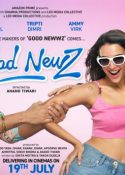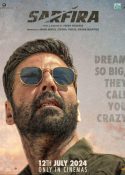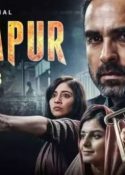Only two Urdu television shows old, but Armeena Rana Khan is already a household name across the border. The Britian based  Pakistani actress dabbles in international independent cinema, Pakistani television shows and now Hindi films. She’s a fresh face with an equally fresh outlook on how she wants to progress in her career. I caught up with the Huff! Its Too Much actress to find out about her plans for the future, the workings of the Pakistani television industry and much more!
Pakistani actress dabbles in international independent cinema, Pakistani television shows and now Hindi films. She’s a fresh face with an equally fresh outlook on how she wants to progress in her career. I caught up with the Huff! Its Too Much actress to find out about her plans for the future, the workings of the Pakistani television industry and much more!
Was acting always on your agenda or was it something you realised after you completed your business degree?
Acting has always been my passion but when you are young you try to do the right thing, the safe option of a career. Although my education has been indispensable in making the choices and deals with the industry professionals to get me where I am now, I am glad I woke up in time and chose acting before it was too late. Otherwise I would be just another corporate manager visiting the cinema on her day off and dreaming I was on the big screen. Forget what the world says, people, work towards your dream. When you are dead you can have the safe option for all eternity, I promise.
You’ve mentioned that your family were adamant you complete you education prior to pursuing films, what has their reaction been now post your two major shows?
I think it is only sinking in now for my family as they watch me on-screen. But I am very down to earth and separate the hype from the reality. I value the real friends and family who were there for me before the career and I separate my job from personal life appropriately and keep them apart.
 How did Huff! Its Too Much happen for you and what made you think this was an appropriate debut in Indian cinema?
How did Huff! Its Too Much happen for you and what made you think this was an appropriate debut in Indian cinema?
I was approached by producers who had been looking for the right girl for over a year and auditioned dozens of actresses before me. They made the decision on the spot. As for my choice, you must understand that Bollywood can be a closed shop for outsiders and unless you are part of an established acting dynasty then it is daunting. So you have to pick as best you can. I saw that this was an international team, including a French Asst. Director, European crew etc. and would be shot in London. It was not your typical hero falls in love, sings and dances before villain comes in and hero beats everybody up, followed by more singing and dancing, kinda movie! Of course there is boy meets girl and the music in this film is excellent with a score provided Lucky Ali, Salim Merchant among others. But it tries to take it a step forward and reflect the real life ups and downs of young modern Indians abroad. It was the right choice at the time.
Tell us a bit about the film and the character you play?
My character if of Ishita Puri, a confused, complex and indecisive model living in London. She is happy-go-lucky and doesn’t know what she wants out of life. She is however very loyal, caring and loving at the same time. She meets her match in a man called Jai (Played by the director Pushkar Jog). Jai is a creative director in a top modelling agency in London. He is equally as indecisive and confused about life. Will their whirlwind romance end up in a happy ending? The film is a funny take about young desis in London and about their trials and tribulations.
I have watched both your shows, Shab – E – Arzoo Ka Aalam and Happily Married, and can definitely say you’ve  pulled off a very versatile debut on Pakistani television with a light-hearted drama and an out and out comedy show. Was it a conscious decision to do two genres and characters so different to each other in your first year on television or did you just happen to get lucky?
pulled off a very versatile debut on Pakistani television with a light-hearted drama and an out and out comedy show. Was it a conscious decision to do two genres and characters so different to each other in your first year on television or did you just happen to get lucky?
That is a good spot on your part. Because I am working in three markets, I have to be smart about what I choose and how I go about it. My options are limited, being a new comer and there are risks such as being typecast or ending up in extra roles. Additionally South Asian audiences don’t easily accommodate newcomers that they can’t pigeonhole. This is where my business background helped and together with my team we assessed the risks and opportunities and decided to negotiate lead roles in a comedy and a drama simultaneously. This was to mitigate the risk of being typecast whilst at the same time allowing me to display my versatility as an actress. I supplemented this with a strong P.R and magazine campaign. I am now on my third project with “Bin Roe Ansoo” and have the honour of working with some of the finest actors and crew in the Pakistani industry.
The process of creation for Urdu dramas is very different to anything on Indian television which is only soaps in the fiction sphere. Tell us a bit about how long you typically shoot for a show and what the pressures/constraints like? (I.e. in Indian television actors typically complain about long schedules and rushed shooting because all the shows are daily soaps, you obviously don’t have that in your shows, so how does the process work for your weekly dramas.)
The public only sees the glamorous side of this job and does not always understand how hard actors have to work. My working day is about 12 hours in the initial stages of a project and then literally 18 hours towards the latter stages of production. Working across the 3 markets is very different in some ways but of course the underlying imperative is the same, i.e. commercial success. Urdu dramas are very technical and method focused. If you get just one critical thing wrong it is obvious and the audiences are very unforgiving. So for example my current project “Bin Roe Aansoo” started shooting in June 2013 and will complete in January 2014, with breaks in between o f course so cast and crew can fulfill other commitments. If the director is not happy with a shot then we stay until the scene is done correctly. Often I find myself on set with the cast at 4am because the dialogue is just not quite to the satisfaction of the director. So I can empathise with the Indian T.V actors who although work in a different format, put in the same sort of long hours we do when shooting a show. However I do think that working your cast in such a way detracts from the final product. This is indicative of a wider South Asian culture where we subjugate quality and time in favour of cost and volume, I feel. You can see it everywhere and this is where I hope our generation will change things. You cannot keep cutting costs and overworking staff if you want quality results. Create the quality environment first.
f course so cast and crew can fulfill other commitments. If the director is not happy with a shot then we stay until the scene is done correctly. Often I find myself on set with the cast at 4am because the dialogue is just not quite to the satisfaction of the director. So I can empathise with the Indian T.V actors who although work in a different format, put in the same sort of long hours we do when shooting a show. However I do think that working your cast in such a way detracts from the final product. This is indicative of a wider South Asian culture where we subjugate quality and time in favour of cost and volume, I feel. You can see it everywhere and this is where I hope our generation will change things. You cannot keep cutting costs and overworking staff if you want quality results. Create the quality environment first.
You’re dedicated to marketing Asian talent in the West. Typically roles for Asian, not just South Asian, have been very stereotypical and limited, do you see this changing in the future?
No this will not change. Cinema reflects its audience. People want to see idealised stories or situations that reflect their world views and innate prejudices. You only have to look at the films that have been commercially successful in the west such as East is East or Slumdog Millionaire. These are how Westerners make sense of South Asian culture, the ‘other’, and not necessarily how Asian people would project themselves. So just like every other field Asians will have to create and support a parallel industry whilst carving a niche in the western market so that we can properly reflect the diversity of viewers. This is very important. The only way I see this changing is if Asian business gets involved in commissioning by leveraging their advertisement budgets. Or there is an opportunity I feel for an Asian comedy that specifically targets Western and Asian audiences, for example something like Four Lions, which offended and pleased both markets almost in equal measure.
In an interview you mentioned that you enjoy the freedom and dynamic direction that small independent projects allow, in which way do they promote these two things?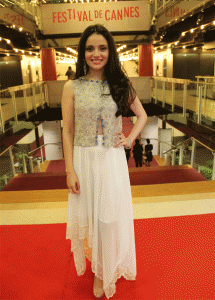
Firstly the absence of commercial pressure to turn a profit means you are free to explore scripts that would not necessarily be entertained by mainstream production houses. Secondly you can change the plan or pursue a creative idea instantly because you are small and light so the logistics don’t get in the way. This is similar to say how a small retailer out manoeuvres a larger competitor. Also what we see in the cinemas now was already explored by Indie film makers 5 or ten years ago. This is why it is particularly exciting.
How was the experience of attending Cannes 2013 with your short film?
Cannes is amazing and I highly recommend anybody to visit if the opportunity arises. At Cannes there are the film makers and then the rest, often yacht owning rich elites, who want to mix with the celebs. I was promoting my film so I had to give most of party invites away, attending only those that were relevant to our film. In fact here is a little tip, if you want to get to the exclusive premieres and yacht/ beach parties at Cannes, grab the invite tickets from an actor friend because we simply cannot go to most of them or are too tired from promotional work to attend.
Over the course of my research I found typically websites introduced you with a note that you work in one of the most dangerous cities of the world, to what level does the political instability and on goings affect the artists of the country/city?
Yes greatly – your set up is key. This is why film makers spend so much money traveling to far away locations. I don’t just mean for the scenery either. I am talking about tax breaks, logistics, red tape, insurance, political security and unionization. These are all factors that decide which geographical location is most suitable. My work is informed by the location. The audience will see a scene without realizing that we had to change the location at the last minute because of gun fire or a bomb blast nearby is the reason why the acting appears particularly dour in a certain scene. I do wonder where for example the Pakistani industry be today without the violence. I think the creativity and talent would be more diverse and developed than it is today. In fact it was sad to see that the Pakistani delegation was absent at Cannes even though some much smaller nations had official delegations. Fortunately for me I had my home Canadian film delegation as a base and was also able touch base with the Indian and British film associations.
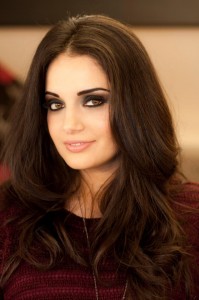 We will see you next in Haissam Husain’s Bin Roye Aansoon with Humayun Saeed and Mahira Khan, have you started working with that? Any nerves about working with not one but three big names?
We will see you next in Haissam Husain’s Bin Roye Aansoon with Humayun Saeed and Mahira Khan, have you started working with that? Any nerves about working with not one but three big names?
I am currently on set in San Francisco shooting this project. I don’t get nervous now as I have my own strengths and look forward to the learning experience each project offers. Having said that it is a tour de force working with seasoned names because you are picking things up all the time.
What are some of your other upcoming projects to look forward to?
Well I will be focusing in the early part of 2014 on short films, for example “Echoes From Eternity” to compete at the film festivals and also I will be getting my commercial endorsements out of the way. I am discussing a number of exciting scripts but also on the lookout for something really “cool” or ground breaking for later in the year and once these are finalized I will announce them on my official Facebook or twitter page.
Thus far your filmography has been a great mixture of work from Indian, UK and Pakistan but predominantly Pakistan, do you plan to choose a particular industry to focus on more or would you prefer to decide it on a script by script basis?
It’s the age old question of focus versus critical mass. I honestly love all three markets for their own unique characteristics. I suppose I could increase my success by sticking to one as most actors do. But I love the cutting edge of the Western projects, the technical challenges in Pakistan and the fun and glam of India. So I think I will continue to market myself as a global product and choose the work on a script by script basis.
Rapid Fire:
Top 3 Bollywood directors you’d like to work with?
Deepa Mehta, Guru Dutt, Imtiaz Ali
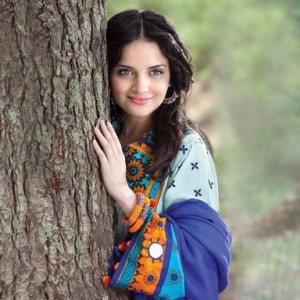 Last Hindi movie you saw which you really enjoyed?
Last Hindi movie you saw which you really enjoyed?
3 Idiots
A Hindi film character you would have loved a chance to play?
Anarkali (Mughal-E-Azam)
An Actor/Actress whose career inspires you?
Judy Dench, Juliette Binoche, Madhu Bala, Daniel Day Lewis, Aamir Khan, Farhan Tahir, Dilip Kumar… sorry I am cheating but that was a naughty question to ask an actor…
Lastly, critical acclaim or box office success, what do you aspire for?
Actors who have critical acclaim envy box office success and vice versa. As you can see from my work I am trying to balance the two by doing the larger projects as well as the art house stuff. But ultimately this is a business like any other and box office success guarantees you the ability to delve into less commercial work whereas it is more difficult to make the transition the other way.
Huff! Its Too Much released India wide on the 8th of November!

